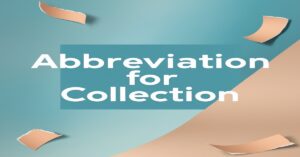Words beginning with the letter “Y” often fly under the radar in everyday conversation, yet they hold the power to add vibrancy and uniqueness to your vocabulary. Whether you’re crafting a story, enriching your writing, or simply looking to expand your linguistic toolbox, adjectives that start with Y can elevate your communication.
In this article, we’ll explore a wide variety of Y adjectives, delving into their meanings and offering examples to help you understand how to incorporate them into your speech and writing.
Why Focus on Adjectives That Start with Y?
You may wonder why specific attention is given to adjectives beginning with “Y.” In the English language, certain letters are less frequent in use than others, and “Y” is one of the rarer letters when it comes to adjectives. However, the adjectives that do start with Y are often packed with rich meanings and can serve as powerful tools in both creative and professional settings. From describing personality traits to depicting nature’s wonders, these adjectives help to convey nuances that might otherwise be left unsaid.
Types of Adjectives Starting with Y
Let’s break down adjectives that start with Y into several categories to showcase their diversity and versatility. Whether you’re seeking words that describe appearance, emotion, or character, there’s something here for every need.
Adjectives Describing Appearance
These Y adjectives are perfect for describing someone’s look or the physical traits of objects or settings.
- Yellowish – Having a yellow tint or hue.
- Young – In an early stage of life or development.
- Youthful – Full of energy, vigor, or qualities typical of youth.
- Yarn-like – Resembling yarn, often used for textures or fibers.
- Yummy – Visually appealing or delicious, typically used for food.
Adjectives Describing Personality
When talking about character traits, these Y adjectives will help you better articulate a person’s nature or demeanor.
- Yar – Ready or willing, especially in terms of action or behavior.
- Yielding – Willing to give in or accommodate others; flexible.
- Yappy – Talkative in an annoying way; often used for dogs or people who talk incessantly.
- Youthful – Energetic, lively, or fresh in spirit, regardless of age.
- Yen – A strong desire or craving, often used metaphorically.
Adjectives That Convey Emotion
To describe feelings and states of being, the following adjectives come in handy:
- Yenning – A strong desire or longing, usually referring to something elusive.
- Yucky – Describes something unpleasant, repulsive, or distasteful.
- Yelping – A sharp, quick cry or sound expressing pain or distress.
- Yowling – A loud, mournful cry or howl, typically indicating distress or protest.
Adjectives Describing Nature or Weather
Nature’s wonders, from the atmosphere to landscapes, can be beautifully depicted with Y adjectives.
- Yonder – Referring to a distant place or location.
- Yellow – The color of the sun or daffodils; bright and often associated with happiness.
- Yearning – A deep, emotional longing for something, often used to describe desires for nature or peace.
- Yar – Describes a boat or ship that is easy to handle and moves smoothly through water.
Unique and Uncommon Y Adjectives
For those looking to expand their lexicon, here are a few unusual Y adjectives that can add flair to your vocabulary.
- Yogic – Relating to yoga or its philosophy and practice.
- Yucky – Disgusting, unpleasant in taste, appearance, or smell.
- Yogurt-like – Having a texture or consistency similar to yogurt.
- Yttriferous – Containing or having the characteristics of yttrium, a chemical element (mainly used in scientific contexts).
Real-World Examples of Y Adjectives in Use
To help you visualize how these adjectives can be seamlessly integrated into conversation or writing, here are a few examples:
- “Her youthful energy brightened up the whole room.”
- “The sky turned a yellowish hue as the sun began to set.”
- “He had a yappy dog that couldn’t stop barking at every passing car.”
- “The yucky taste of the spoiled milk made her cringe.”
How to Use These Adjectives in Your Daily Life
Mastering the use of Y adjectives can enhance your communication, whether you’re writing creatively, speaking formally, or having a casual conversation. Here are a few tips for incorporating them:
- Vary Your Word Choices: Instead of using common adjectives repeatedly, try swapping them for some of the unique Y adjectives listed here. For example, replace “young” with “youthful” or “yucky” with “yellowish” for added depth.
- Use Them in Descriptive Writing: When painting a picture with words, using adjectives starting with Y can give your descriptions a more dynamic quality. Instead of simply saying “the sky is bright,” you could say “the sky has a yellowish glow.”
- Impress in Conversations: Throw in a few of these adjectives when talking about people, events, or objects. It’ll make you sound more knowledgeable and help you stand out.
Adjectives Describing Personality
These adjectives capture various aspects of a person’s character, from their emotional responses to their behavior.
- Yankee – Representing the northern United States, often used to describe an individual from that region.
- Yearning – A deep, intense desire, typically related to emotional needs or goals.
- Yucky – Describes something unpleasant, distasteful, or revolting.
- Yenning – Desiring something strongly, often in a longing or craving manner.
- Yobbish – Vulgar or uncouth behavior, typically associated with an unruly person.
- Young-spirited – Full of youthful vigor and optimism, regardless of actual age.
- Yummy – Pleasantly delicious, often used to describe food.
- Yare – Describes a person or thing that is quick, agile, and responsive to changes.
Adjectives Describing Appearance
These adjectives describe the way something or someone looks, adding detail to physical traits and visuals.
- Yellowish – Having a slight yellow tint or hue.
- Yarn-like – Resembling yarn, particularly in texture or appearance.
- Yonder – Refers to something at a distance, often used to describe faraway places.
- Youthful – Having the appearance or energy associated with youth.
- Yowling – Describes a loud, distressful cry, typically for animals or people in pain.
- Yucky – Unpleasant in appearance, often used to describe something visually unappealing.
- Yashmak-covered – Describes a person or face that is covered, such as with a traditional veil.
Adjectives Describing Emotion and State of Being
These adjectives help articulate emotions and feelings, from joy to sorrow, reflecting the internal state of being.
- Yen – A strong craving or longing for something or someone.
- Yowling – Describing a loud, sorrowful cry or wail often associated with distress.
- Yucky – Used to express disgust or displeasure, especially when referring to food.
- Yenning – A state of yearning or strong desire for something, often used for abstract longings.
- Yapping – Excessive or repetitive talking, often to express irritation or excitement.
Adjectives Describing Nature and Weather
These Y adjectives focus on the environment, weather, and natural elements.
- Yellow – A bright, sunny color often linked with happiness and warmth.
- Yonder – A term used to describe distant places or faraway sights.
- Yearning – A deep, emotional longing for something, often related to nature or peace.
- Yarn-like – Often used to describe textures that resemble woven threads, like natural fibers.
- Yogurt-like – Describes something that has the smooth texture or consistency of yogurt.
- Yellowish-green – A color that blends yellow and green, often used to describe plants or nature’s hues.
- Yolk-colored – A bright, golden yellow often associated with egg yolks, used to describe certain shades in nature.
Adjectives Used for Specific Contexts
These adjectives serve specialized purposes, useful in particular areas like science, art, or culture.
- Yogic – Relating to yoga or the practice of meditation and physical discipline.
- Yttriferous – Containing or composed of yttrium, typically used in scientific contexts.
- Yugoslavian – Referring to the former Yugoslavia or its culture.
- Yuppie – Short for “young urban professional,” often used to describe affluent city dwellers.
- Yiddish – Relating to the Yiddish language or culture.
Uncommon and Unique Adjectives
Here are some rare and more complex adjectives that may not appear in daily conversation but can be quite interesting when used.
- Yogurt-like – Something with the creamy texture or appearance of yogurt.
- Yttrium-rich – Containing a significant amount of yttrium, a rare earth element.
- Yonderly – Referring to someone who is lost in thought or distant, almost absent-minded.
- Yellowtail – Used to describe a type of fish or any object that resembles the yellow tail of certain species.
- Yogistic – Pertaining to the principles or practice of yoga.
- Yachting – Related to the sport or activity of sailing or boating in luxurious vessels.
- Yttrium-based – Describing substances or materials that are based on yttrium or contain it.
Adjectives Describing Actions or Conditions
These adjectives express actions or states of being, which can make them useful in a variety of contexts.
- Yanking – The act of pulling something quickly and with force.
- Yelping – A quick, sharp cry or sound, often indicating pain.
- Yawning – The involuntary act of opening one’s mouth wide, usually associated with tiredness.
- Yapping – Describes a continuous, annoying barking or talking.
- Yondering – Referring to the action of looking or pointing toward the horizon or a distant place.
Adjectives Describing Personality
These adjectives highlight various aspects of a person’s character, temperament, and behavior.
- Yare – Responsive, agile, and quick to react.
- Yappy – Characterized by incessant talking or barking, often in an annoying manner.
- Yearning – Having an intense desire or longing for something.
- Yielding – Flexible or willing to give way, often used to describe a submissive personality.
- Yobbish – Rough, uncouth, or vulgar, typically associated with rowdy behavior.
- Young-hearted – Having a youthful spirit or attitude, regardless of age.
- Yenful – Full of yearning or desire for something unattainable.
- Yenning – Strongly desiring or craving something.
Adjectives Describing Appearance
These adjectives describe the physical characteristics or appearance of people, objects, or places.
- Yellowed – Having turned yellow, typically due to age or exposure.
- Yogic – Pertaining to or resembling the practice of yoga, often used to describe a serene or peaceful appearance.
- Youthful – Having an appearance or energy associated with youth; fresh or vibrant.
- Yarn-like – Resembling yarn, especially in texture or appearance.
- Yondering – Referring to something or someone that is far away or in the distance.
- Yolk-colored – Bright yellow, resembling the color of an egg yolk.
- Yucky – Unpleasant in appearance or taste, often used to describe something distasteful.
- Yarrow-like – Resembling yarrow, a plant with feathery leaves and clustered flowers.
Adjectives Describing Emotion and State of Being
These adjectives convey emotions, feelings, and mental states, allowing for greater expression of mood.
- Yenning – Having a strong craving or longing for something.
- Yucky – Describing something repulsive or unpleasant, often in terms of taste or texture.
- Yowling – A loud, mournful cry, often indicating pain, distress, or protest.
- Yucky – A term used to describe something that induces disgust or revulsion.
- Yawning – Involuntary, typically due to tiredness, indicating boredom or fatigue.
- Yenful – Filled with an intense desire or longing for something.
- Yapping – The act of talking continuously in an annoying manner.
- Yearning – A deep emotional longing or desire for something, often used for distant goals or abstract aspirations.
Adjectives Describing Nature and Weather
These adjectives can be used to describe the natural world, landscapes, and weather patterns.
- Yellower – A more intense or deeper shade of yellow.
- Yellowish-green – A color between yellow and green, often used for certain plants or natural phenomena.
- Yearning – A longing for natural peace or tranquility, often invoked in poetic contexts.
- Yellowed – Describing something that has become yellow, typically with age or exposure to sunlight.
- Yonder – Referring to something distant in space or time, often used poetically.
- Yogurt-like – Having a thick, creamy texture, similar to yogurt.
- Yonderly – Referring to a distant or far-off location, often evoking feelings of contemplation or nostalgia.
- Yolkish – Having the golden, rich color of an egg yolk.
Adjectives Used in Specific Contexts
Some Y adjectives are specific to particular fields or disciplines, making them ideal for more specialized discussions.
- Yttriferous – Containing or producing yttrium, a rare earth element, often used in scientific contexts.
- Yogistic – Pertaining to or characteristic of the practice and philosophy of yoga.
- Yiddish – Relating to the Yiddish language or Jewish culture.
- Yuppie-ish – Characterized by the lifestyle of a young urban professional.
- Yogic – Describing qualities or practices associated with yoga, such as serenity or discipline.
- Yttrium-based – Used to describe substances or materials that contain or are made from yttrium.
- Yankee-style – Referring to a specific way of doing things associated with the northern United States, especially in cultural contexts.
- Yugoslavian – Pertaining to the former Yugoslavia or its people.
Adjectives Describing Actions or Conditions
These adjectives reflect particular actions, behaviors, or states of being, adding nuance to your descriptions.
- Yawning – Referring to the act of opening one’s mouth widely due to fatigue or boredom.
- Yapping – Continuously speaking in an irritating or high-pitched manner.
- Yanking – Pulling something quickly and forcefully.
- Yelping – A sharp cry or sound, often from pain or surprise.
- Yowling – A loud, mournful cry, particularly from animals, often associated with distress.
- Yanking – Describes the sudden action of pulling or jerking something.
- Yelping – Making a sharp, high-pitched cry, especially in pain or alarm.
- Yondering – Referring to the act of looking into or pointing toward the distant horizon.
Rare and Uncommon Y Adjectives
In this section, we highlight some rare, sophisticated, or uncommon Y adjectives that might intrigue those looking to expand their vocabulary further.
- Yuppified – Referring to the process of adopting the lifestyle of a young urban professional.
- Yarmulke-covered – Referring to someone or something covered with a yarmulke, a traditional Jewish head covering.
- Yogurt-like – Describing something with a smooth, creamy texture, similar to yogurt.
- Yttrium-rich – Containing a high concentration of yttrium, an element used in various advanced materials and technologies.
- Yellowtail – Referring to a type of fish or describing the yellow tail of an animal, often used metaphorically.
- Yashmak-covered – Describing someone whose face is covered with a traditional veil, such as in some Middle Eastern cultures.
- Yobbo-like – Having the crude or rowdy characteristics of a “yobbo” (a British slang term for a person of low social standing and uncouth behavior).
- Yogistic – Pertaining to the principles, philosophy, or practices of yoga.
Adjectives Describing Personality
These adjectives help describe a person’s temperament, character traits, and social behavior.
- Yare – Quick to respond, agile, and ready for action.
- Yobbish – Referring to behavior that is boorish, rude, or uncouth.
- Youthful – Having qualities associated with youth, such as energy, optimism, or a fresh appearance.
- Yenful – Full of yearning or longing for something.
- Yearning – A deep, emotional longing or desire for something, often unattainable.
- Yappy – Describing a person (or animal) that talks excessively or incessantly.
- Yankee – Associated with the Northern United States, often referring to a stereotypical personality trait of toughness or straightforwardness.
- Yuckish – Exhibiting a distasteful or disgusted reaction, often in response to something unpleasant.
Adjectives Describing Appearance
These adjectives describe physical traits or the appearance of things, whether it’s people, objects, or scenery.
- Yellowish – Having a slight yellow tint or hue.
- Yarn-like – Resembling yarn in texture, appearance, or composition.
- Youthful – Appearing youthful, often with a fresh, energetic appearance.
- Yonder – Describing something at a distance, often referring to faraway places.
- Yolk-colored – A shade of bright yellow, similar to the color of an egg yolk.
- Yen-like – Describing something that evokes a strong desire or craving, particularly something unattainable.
- Yogurt-like – Describes a smooth, creamy texture, similar to yogurt.
- Yonderly – Referring to something distant or far away, often with a poetic or reflective tone.
Adjectives Describing Emotions or Mental States
Adjectives in this section capture emotions, feelings, and psychological states.
- Yenning – Having an intense desire or longing for something, often used for abstract concepts.
- Yucky – Used to express disgust or aversion, particularly in response to something unpleasant.
- Yelping – A sharp, high-pitched cry, often indicating pain or alarm.
- Yowling – A loud, mournful cry, often associated with distress, particularly from animals.
- Yawning – The involuntary action often associated with tiredness or boredom.
- Yenful – Filled with longing or craving, especially for something unattainable.
- Yearning – A deep, persistent feeling of longing or desire, often used in a more emotional context.
- Yappy – Describing someone who is overly talkative or loud in a persistent manner.
Adjectives Describing Nature and Weather
These adjectives are related to the natural world, weather conditions, and the environment.
- Yellowed – Having turned yellow, typically due to aging or exposure to sunlight.
- Yellowish-green – A color that combines yellow and green, often used to describe plants or certain weather phenomena.
- Yonder – Describing a distant place or something far away, often used when referring to the horizon or a far-off location.
- Yolk-like – Describing something that resembles the color or texture of egg yolk.
- Yearning – Describes a longing for something, often related to nature or the peace of the outdoors.
- Yarn-colored – Referring to a color similar to that of yarn, typically in soft, natural shades.
- Yonderly – Used to describe a view or thing that is distant or beyond reach.
- Yellowtail – Referring to a type of fish, but also used to describe the color of a tail, often found in nature.
Adjectives Used in Specific Contexts
These adjectives are typically used in more specialized or technical fields such as science, culture, or professions.
- Yogistic – Pertaining to or characteristic of yoga or its practices.
- Yttriferous – Containing or producing yttrium, a chemical element.
- Yugoslavian – Relating to the former country of Yugoslavia or its people.
- Yuppie – Referring to a young urban professional, often used to describe a specific lifestyle.
- Yogic – Describing practices or philosophies associated with yoga, particularly in terms of tranquility and balance.
- Yttrium-rich – Containing a high level of yttrium, often used in materials science.
- Yankee-style – Referring to a manner or style associated with the northern United States, often implying practicality or directness.
- Yiddish – Pertaining to the Yiddish language or its cultural context, often referring to Jewish traditions or folklore.
Conclusion: Let Y Adjectives Work for You
In conclusion, adjectives that start with Y are an underappreciated treasure trove in the English language. From the richness of nature to the complexity of human emotions, these words help us communicate more vividly and precisely. Whether you’re a writer looking to elevate your prose or simply someone aiming to expand your vocabulary, make it a point to incorporate these Y adjectives into your linguistic repertoire.
So, why not take a moment to reflect on how these adjectives can transform your next conversation or piece of writing? How might a simple word like “youthful” bring an entirely new dimension to your storytelling? The power to enrich your language is in your hands—start using these Y adjectives today!
Quiz: Adjectives Starting with the Letter “Y”
This quiz tests your understanding of the 50 adjectives starting with the letter “Y” discussed in the article. Choose the correct answer for each question. The answers are provided after each question.
1. Which of the following adjectives describes a person who is quick to respond and agile?
A) Yobbish
B) Yare
C) Yucky
D) Yapping
Answer: B) Yare
Explanation: “Yare” refers to being quick to respond, agile, and ready for action.
2. What does the adjective “Yenful” describe?
A) A deep emotional longing or desire
B) A loud, mournful cry
C) A smooth, creamy texture
D) Having a yellowish tint
Answer: A) A deep emotional longing or desire
Explanation: “Yenful” describes a state of being filled with yearning or craving.
3. Which adjective refers to someone talking excessively or incessantly?
A) Youthful
B) Yobbo-like
C) Yappy
D) Yonderly
Answer: C) Yappy
Explanation: “Yappy” is used to describe someone who talks too much or in an annoying manner.
4. Which adjective is used to describe a color that resembles egg yolk?
A) Yellower
B) Yolk-colored
C) Yonder
D) Yellowtail
Answer: B) Yolk-colored
Explanation: “Yolk-colored” refers to something that is a bright yellow shade, similar to the color of an egg yolk.
5. What does the adjective “Yobbish” mean?
A) Describing someone who is calm and gentle
B) Describing behavior that is boorish and uncouth
C) Referring to a person who is quick to react
D) Having a deep emotional longing
Answer: B) Describing behavior that is boorish and uncouth
Explanation: “Yobbish” refers to rude, rowdy, or vulgar behavior, often associated with a “yobbo” in British slang.
6. Which of the following adjectives is used to describe a smooth, creamy texture similar to yogurt?
A) Yogistic
B) Yonder
C) Yucky
D) Yogurt-like
Answer: D) Yogurt-like
Explanation: “Yogurt-like” is used to describe a texture that is smooth and creamy, much like yogurt.
7. What is the meaning of the adjective “Yonderly”?
A) Describing something yellowish-green
B) Referring to something far off or distant
C) Having a youthful appearance
D) Describing a loud cry from pain
Answer: B) Referring to something far off or distant
Explanation: “Yonderly” is used to describe something that is far off, typically in a poetic or reflective way.
8. Which adjective describes a type of fish and also refers to a yellow tail?
A) Yolkish
B) Yonderward
C) Yellowtail
D) Yuppie-style
Answer: C) Yellowtail
Explanation: “Yellowtail” refers to a type of fish, but can also describe the yellow tail of animals in nature.
9. The adjective “Yawning” most commonly refers to:
A) A strong desire for something
B) An involuntary action indicating tiredness or boredom
C) A creamy texture similar to yogurt
D) The color of a distant landscape
Answer: B) An involuntary action indicating tiredness or boredom
Explanation: “Yawning” refers to the involuntary act of opening one’s mouth widely, often due to fatigue or boredom.
10. Which adjective refers to the characteristic of someone living the lifestyle of a young urban professional?
A) Yttriferous
B) Yuppie
C) Yiddish
D) Yogistic
Answer: B) Yuppie
Explanation: “Yuppie” refers to a young urban professional, often characterized by a certain lifestyle or career-driven attitude.
11. What is the meaning of the adjective “Yogistic”?
A) Pertaining to the principles or practices of yoga
B) Referring to a distant place
C) Describing a feeling of longing
D) Related to the texture of yogurt
Answer: A) Pertaining to the principles or practices of yoga
Explanation: “Yogistic” refers to something related to yoga or its practices, often involving tranquility or balance.
12. Which adjective would describe a loud, sharp cry, often in response to pain?
A) Yapping
B) Yelping
C) Yonder
D) Yarning
Answer: B) Yelping
Explanation: “Yelping” refers to a sharp, high-pitched cry often made in response to pain or surprise.
13. The adjective “Yttriferous” would be most commonly used in which context
A) Describing a type of fish
B) In reference to a rare earth element in chemistry
C) Describing a yellowish color
D) Referring to an ancient culture
Answer: B) In reference to a rare earth element in chemistry
Explanation: “Yttriferous” refers to the presence of yttrium, a rare earth element, often used in scientific contexts.
14. Which adjective describes a yellowish-green color, often used in nature?
A) Yellower
B) Yolkish
C) Yellowish-green
D) Yonderly
Answer: C) Yellowish-green
Explanation: “Yellowish-green” describes a color that combines yellow and green, often seen in plants or natural phenomena.
15. The adjective “Yarn-like” would best describe:
A) A smooth texture
B) A person who talks incessantly
C) Something resembling yarn in texture or composition
D) A color related to sunlight
Answer: C) Something resembling yarn in texture or composition
Explanation: “Yarn-like” describes something that resembles yarn, typically in terms of texture or style.
16. Which adjective would be most appropriate to describe an unpleasant taste or smell?
A) Yucky
B) Yonder
C) Yapping
D) Yellowtail
Answer: A) Yucky
Explanation: “Yucky” is used to describe something that is unpleasant, particularly in terms of taste or smell.
17. Which adjective refers to a loud, mournful cry, often associated with distress?
A) Yawning
B) Yelping
C) Yowling
D) Yondering
Answer: C) Yowling
Explanation: “Yowling” refers to a loud, mournful cry, typically made by animals in distress.
18. What does the adjective “Yarish” most likely describe?
A) A color related to the color of yarn
B) A rare scientific term for a chemical compound
C) A texture similar to that of yogurt
D) A type of bird call
Answer: A) A color related to the color of yarn
Explanation: “Yarnish” could describe something resembling yarn, especially in terms of its texture or style.
19. The adjective “Yonderward” refers to:
A) A forward-moving action
B) A direction toward a distant place
C) A state of deep yearning
D) A type of animal sound
Answer: B) A direction toward a distant place
Explanation: “Yonderward” refers to the direction of something distant, often used in poetic or reflective contexts.
20. Which adjective would best describe the quality of something that is creamy and smooth?
A) Yellower
B) Yogurt-like
C) Yobbo-like
D) Yttrium-based
Answer: B) Yogurt-like
Explanation: “Yogurt-like” refers to something that has a smooth, creamy texture similar to yogurt.

Tony James is a passionate wordsmith and the creative force behind Winky Hive. With a knack for uncovering the stories behind slang and weaving emotions into poetry, Tony brings a unique voice to every piece he writes. A lifelong lover of language, he thrives on exploring how words evolve, connect, and inspire.
When he’s not penning articles or crafting verses, Tony enjoys diving into cultural trends, reading classic poetry, and discovering hidden gems in modern expressions. His mission? To make Winky Hive a haven for those who love the art of language in all its vibrant forms.









